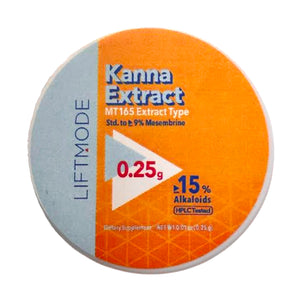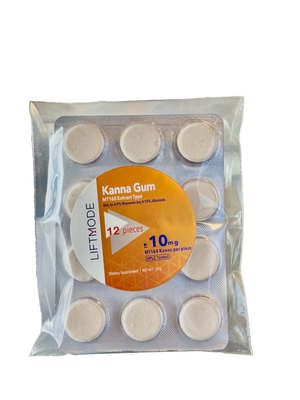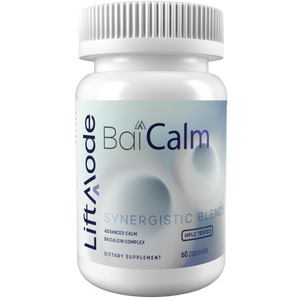Quercetin is a chemical compound found in a number of fruits and vegetables. It is an example of a bioflavonoid substance. Bioflavonoids are the biochemicals that give many fruits, vegetables, and flowers their colors. Their beneficial effects have been known to humans for thousands of years.
All flavonoid substances act as antioxidants in the human body. Quercetin has long been known as an exceptional bioflavonoid in terms of its powerful antioxidant effects and the other benefits that it possesses. In this article, we explore the top six Quercetin benefits for promoting a healthier body.
[caption id=""attachment_2322"" align=""alignright"" width=""848""]
![]()
Quercetin is found in a number of fruits and vegetables and is a bioflavonoid - a compound that helps give fruits, vegetables, and flowers their color![/caption]
1. Quercetin Benefits: Anti-Inflammatory Effects
One of the most
important Quercetin benefits is its ability to help reduce inflammation in your body. Research has shown that Quercetin has powerful anti-inflammatory and antioxidant effects. These effects are beneficial for anybody looking to boost their general health and well-being.
A 2012 study published in the Journal of Research in Medical Sciences showed that 8 weeks of supplementation with a Quercetin-vitamin C combination was effective in reducing inflammation and oxidative stress.
[1]
Furthermore, research published in 2006 indicated that Quercetin has a remarkable ability to inhibit histamine production, as well as the functions of cyclin-dependent kinases. These biochemicals (histamine) and enzyme (cyclin-dependent kinases) are involved in inflammation, and especially in allergic responses. By temporarily blocking their function, Quercetin helps your body to reduce inflammation.
[2]
2. Helps with Immune System Support
[caption id=""attachment_2323"" align=""alignright"" width=""300""]
![]()
Quercetin has been found to reduce inflammation and especially to reduce histamine and allergic responses![/caption]
Another of the most valuable Quercetin benefits is its ability to help boost your body’s immune system. Recent research, published in the Journal of Nutrients in 2016, showed that Quercetin is a safe and effective supplement both for reducing inflammation and for improving immune system functions.
[3]
The research was published as a review of the data on Quercetin including
in vitro studies, animal studies, and human clinical studies. Examining just the human clinical studies, it is clear that Quercetin has a beneficial effect on promoting a stronger immune system.
[4]
3. Promotes a Healthy Circulatory System
Quercetin has been shown to improve a number of factors of the circulatory system, in various different studies. We’ll look at two of the top Quercetin benefits for promoting a healthy circulatory system:
Helps to promote healthy blood pressure
A 2007 study published in the Journal of Nutrients showed that Quercetin has a wonderful ability to help promote healthy blood pressure levels.
[5]
Helps to promote a healthy lipid profile
[caption id=""attachment_1217"" align=""alignright"" width=""300""]
![]()
Liftmode's Quercetin, 95% purity: health-promoting![/caption]
Again, a number of studies have looked into the Quercetin benefits of promoting a healthy blood lipid profile. This is why Quercetin is considered to be one of the
top 5 supplements for promoting a healthy heart.
One study, published in 2012, showed that Quercetin supplements helped to support healthy blood lipid values for 200 people enrolled in the study.
[6]
4. May Help Reduce Stress
New research has pointed to Quercetin’s ability to reduce cortisol levels and potential to help your body manage stress. The research is still based on animal studies, however, and more human studies are needed.
In a 2010 study published in the Journal of Nutrient Biochemistry, scientists fed rats Quercetin supplements and measured their responses to stress. The researchers found that Quercetin supplements significantly reduced stress response both in behavior and in biochemical responses. For example, plasma corticosterone and adrenocorticotropic hormone levels, as well as mRNA expression of corticotropin-releasing factors were all suppressed.
[7]
For anyone without a degree in biochemistry, these can simply be remembered as biochemical markers of the stress response. It appears that Quercetin may have a remarkable ability to reduce the body’s response to stress. Furthermore, a human study was published showing that Quercetin supplements may help reduce the biochemical stress responses to exercise and heat.
[8]
[caption id=""attachment_2324"" align=""alignright"" width=""848""]
![]()
One of the top Quercetin benefits is its ability to help reduce stress and to promote relaxation[/caption]
5. Boosts Energy Levels
[caption id=""attachment_2325"" align=""alignright"" width=""300""]
![]()
Quercetin has been shown to boost energy and athletic performance[/caption]
For a long time, there was some debate as to whether or not Quercetin could be used to improve athletic performance and boost energy levels. In 2009, researchers from the University of South Carolina worked to set the record straight. Researchers at the Arnold School of Public Health produced data collected from 12 participants involved in the study. The active group was given 500mg of Quercetin twice daily, for the seven-day study.
The data showed that Quercetin supplements have the ability to improve VO2max by around 4% and to boost physical endurance by as much as 13.2%. These data were statistically significant, showing that Quercetin can, indeed, be used as an energy-boosting supplement. The scientists suggested that Quercetin may have the ability to improve the activity of mitochondria in muscle and brain cells.
[11]
Recommended Quercetin Dosage
[caption id=""attachment_2327"" align=""alignright"" width=""300""]
![]()
Researchers have put in a lot of time and effort to determine the ideal Quercetin dosage[/caption]
Examine.com, a great resource for unbiased information on supplements and their efficacy, has a suggested dosage for Quercetin based on previous studies. For more information about the recommended Quercetin dosage, check out our
dosage information here.
According to information at Examine.com, the recommended Quercetin dosage is between 12.5 and 25mg per kg bodyweight. This equates to roughly 900-1800mg per day for a 75kg person. This dose is normally taken in two to three separate servings throughout the day.
[12]
Quercetin goes really well with other
plant-based dietary supplements including other polyphenols and bioflavonoids. Examples of good Quercetin combinations include Quercetin
with Green Tea Extract,
with Taurine,
with Berberine,
with Baicalin,
with L-Theanine, and
with Magnolia Bark Extract.
Side-Effects and Warnings
Although Quercetin is considered to be a very safe dietary supplement for promoting good health, there are some safety considerations to think about before taking this supplement. These safety concerns are regarding interactions between Quercetin and other substances.
Quercetin may negatively affect the ability of other medication to work. Especially important are the following medications:
[caption id=""attachment_275"" align=""alignright"" width=""300""]
![]()
Quercetin, 95% purity, is safe but should not be combined with medication and not taken when pregnant[/caption]
- Antibiotics
- Medications that are broken down by the liver
- Cytochrome P450 substrates
- P-Glycoprotein substrates
If you are taking any medication, please consult with your doctor before taking Quercetin supplements. Some interactions may have the potential to result in adverse effects on your body.
[13]
There is also insufficient evidence as to the safety of taking Quercetin supplements for women who are pregnant or breastfeeding. Please speak to your doctor before using Quercetin if you are pregnant or breastfeeding.
Quercetin Benefits: Conclusion
In summary, Quercetin has a number of great health-promoting benefits for anybody looking to add a great dietary supplement to a healthy diet and lifestyle. Some of the top Quercetin benefits include the ability to help your body reduce inflammation and to improve your immune system’s health.
The recommended dosage for a Quercetin supplement is around
12.5 – 25mg per kilogram bodyweight. This equates to around
900 – 1800mg per day for a 75kg person, taken in two to three separate servings through the day.
Quercetin is a safe dietary supplement when used at the recommended dosage. It goes well with other bioflavonoids and plant-derived supplements. However, it is not recommended to use Quercetin if you are taking other medication or if you are pregnant or breastfeeding.
[caption id=""attachment_2326"" align=""alignright"" width=""848""]
![]()
Garlic, ginger, and lemons are often used to boost immune system health. Interestingly, these are great natural sources of Quercetin![/caption]
Medical Disclaimer
Not intended to treat, diagnose, or cure any disease or ailment. Please read and fully understand potential adverse effects before using this product. These statements have not been reviewed by the FDA and are not written by a medical professional. Please consult your doctor before using any supplements, especially if you have any medical conditions. Tristan
B.Sc. in Molecular Biology and Biochemistry Researched & written by
Tristan and verified by the Liftmode.com Research Team
References:
[1] G Askari et al., “
The effect of quercetin supplementation on selected markers of inflammation and oxidative stress”, J Res Med Sci. 2012 Jul; 17(7): 637–641.
[2] YB Shaik et al., “
Role of quercetin (a natural herbal compound) in allergy and inflammation”, J Biol Regul Homeost Agents. 2006 Jul-Dec;20(3-4):47-52.
[3] Y Li et al., “
Quercetin, Inflammation and Immunity”, Nutrients. 2016 Mar; 8(3): 167.
[4] SA Heinz et al., “
Quercetin supplementation and upper respiratory tract infection: A randomized community clinical trial”, Pharmacol Res. 2010 Sep;62(3):237-42
[5] RL Edwards et al., “
Quercetin reduces blood pressure in hypertensive subjects”, J Nutr. 2007 Nov;137(11):2405-11.
[6] Talirevic E, Jelena S. “
Quercetin in the treatment of dyslipidemia”, Med Arh. 2012;66(2):87-8.
[7] K Kawabata et al., “
Suppressive effect of quercetin on acute stress-induced hypothalamic-pituitary-adrenal axis response in Wistar rats”, J Nutr Biochem. 2010 May;21(5):374-80.
[8] M Kuennen et al., “
Thermotolerance and heat acclimation may share a common mechanism in humans”, Am J Physiol Regul Integr Comp Physiol. 2011 Aug;301(2):R524-33
[9] L Gibellini et al., “
Quercetin and Cancer Chemoprevention”, Evid Based Complement Alternat Med. 2011; 2011: 591356.
[10] JH Jeong et al., “
Effects of low dose quercetin: Cancer cell-specific inhibition of cell cycle progression”, J Cell Biochem. 2009 Jan 1; 106(1): 73–82.
[11] “
Arnold School study reveals benefits of Quercetin”, Office of Media Relations at University of South Carolina, June 2009, accessed June 1, 2017
[12] “
Quercetin”, Examine.com, accessed June 1, 2017
[13] “
Quercetin: Supplement Facts and Information”, WebMD.com, accessed June 1, 2017




